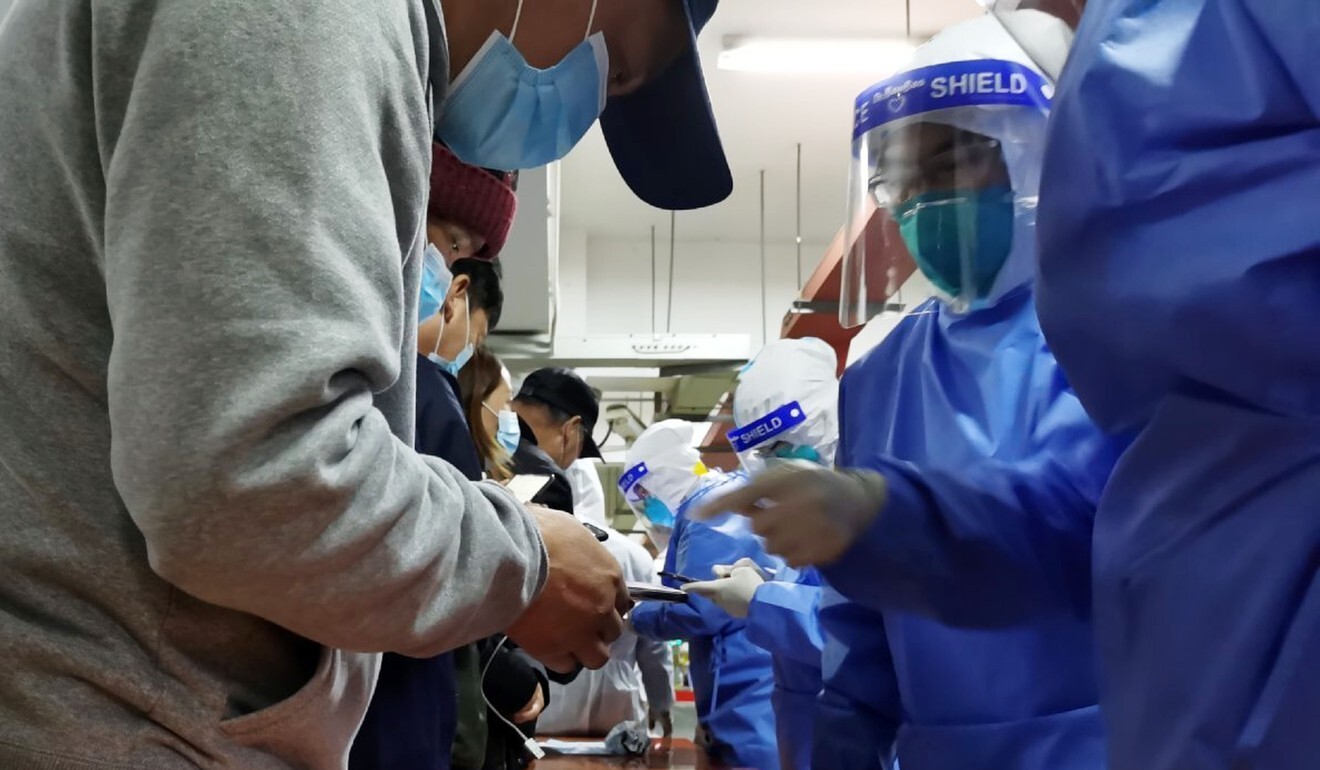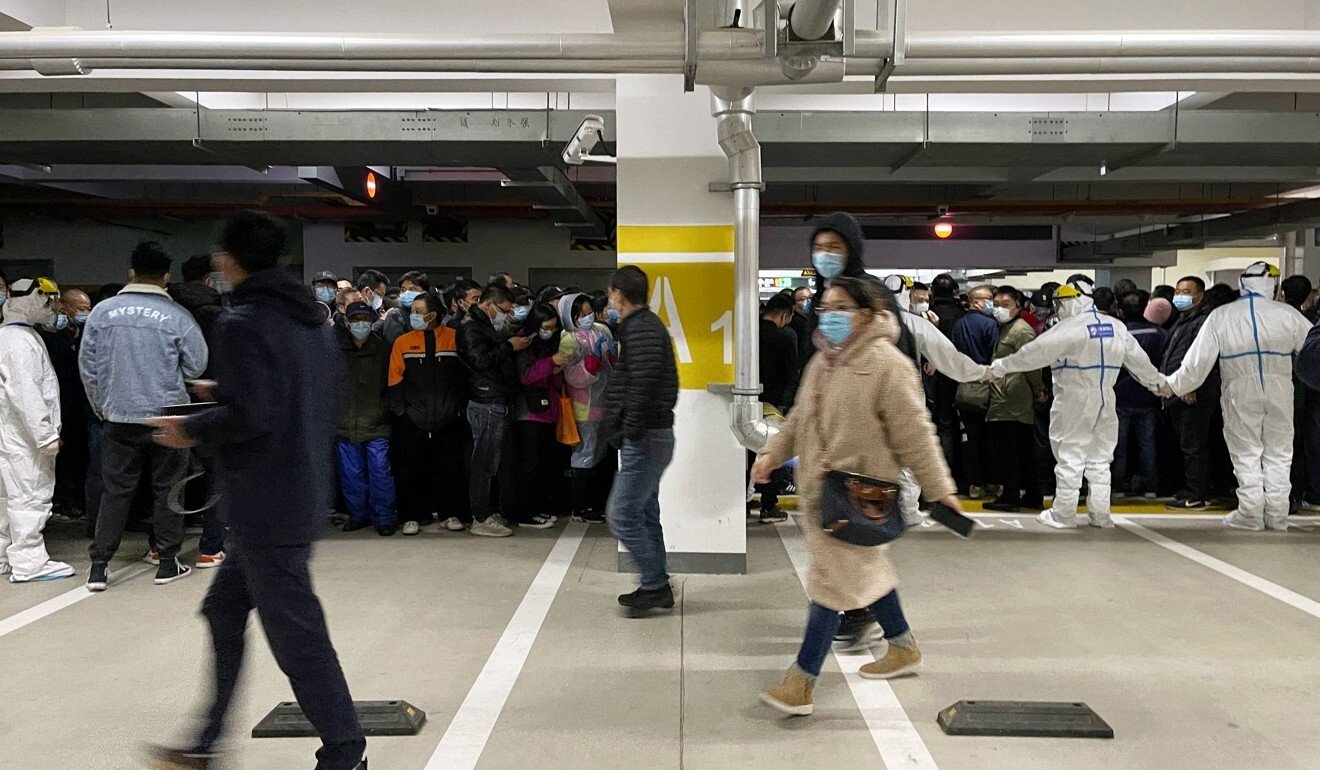
Coronavirus: mass testing of Shanghai airport workers as city reports new cases
- More than 17,700 employees at Pudong International screened; high-risk staff to be given experimental vaccines
- Videos posted online show tensions rising between medical personnel and workers

Thousands of workers at one of China’s biggest international airports were tested for the coronavirus on Sunday night after a series of new cases were linked to the facility.
Zhou Junlong, vice-president of the Shanghai Airport Authority, said on Monday that 17,719 workers from the cargo handling section of Shanghai Pudong International Airport were tested for the virus that causes Covid-19.
By noon Monday, 11,544 people had tested negative, with analysis of the remaining samples under way.
“Next, we will carry out nucleic acid tests on frontline cargo workers at high risk,” Zhou said.
“Meanwhile, we will step up disinfection of imported goods as well as the cargo handling equipment and work areas.”

He also said the high-risk workers would be inoculated with a coronavirus vaccine candidate with their consent. Although none of the coronavirus vaccines developed in China have been approved for general use, the country has inoculated almost 1 million people under an emergency authorisation arrangement.
Shanghai has reported five new Covid-19 cases since Friday.
One is an employee at the UPS international transit centre at Pudong airport who is believed to have infected his wife and three of his colleagues, according to Li Guohua, deputy head of Pudong New Area.
Footage circulating online shows hundreds of cargo workers shoving medical workers in protective suits sent to do the tests.
In one video taken at about 8pm on Sunday, crowds of people gather at a car park apparently waiting for the tests. Another clip shows the medical workers telling the cargo handlers to wait for more news from their employers about the tests.
*Chaos at Shanghai Pudong Airport after three recent confirmed COVID-19 cases are airport workers. #上海 #浦东 #China pic.twitter.com/cHcwcRay9d
— ChinaPropertyFocus (@ChinaPropFocus) November 22, 2020
Earlier this month, a man identified only as Wang, who worked in Pudong airport’s cargo handling area, was found to have been infected with the coronavirus. Subsequent tracing found that he was linked to one of his colleagues who also tested positive for the virus. The second man had left Shanghai and returned to his hometown in the eastern province of Anhui.
According to Sun Xiaodong, deputy director of the Shanghai Centre for Disease Control and Prevention, both men were believed to have contracted the virus last month when they cleaned a freight container from North America without wearing masks.
“The environment inside the container is humid and that is conducive to the survival of the coronavirus,” Sun said.
“We have confirmed that the two workers were infected with coronaviruses of the same origin. The genes are, to a large extent, similar to those strains found in North America.”
Sun said they had ruled out other transmission paths since neither man had contact with a Covid-19 patient, a suspected case or a so-called silent carrier showing no symptoms. In addition, neither man handled imported cold food.

China has reported a number of Covid-19 cases apparently spread through the handling of imported frozen food, with the northern cities of Qingdao, Tianjin and Beijing quickly responding with mass testing.
But the World Health Organization says that although the virus can survive on surfaces for a long time, depending on the temperature and humidity, “it is highly unlikely that people can contract Covid-19 from food or food packaging”.